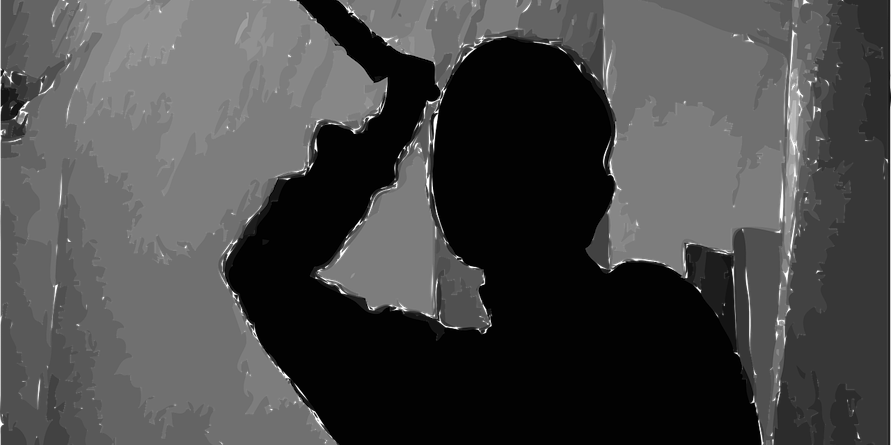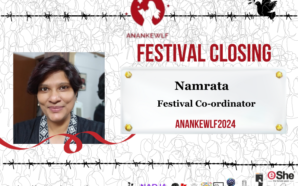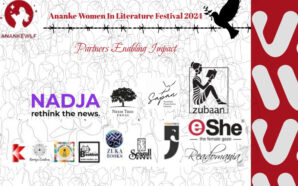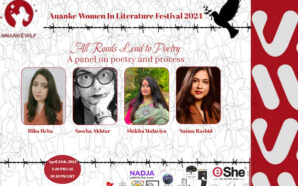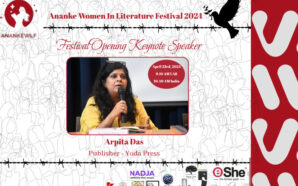The concept of honor has always been identified with gender, specifically speaking the female gender. The term itself connotes a multitude of social concepts, deeply entrenched patriarchal mindset as well as politico-economic ideals; which can be anything from being negative, positive, chivalrous as well as stereotypical.
In the 20th and 21st centuries, with shifting socio-economic and geo-political paradigms, honor has been recast in a newly evolved model but with the same age-old view; stemming from patriarchy that considers women as man’s property. As a consequence likening honor with dishonoring the ‘other’! Thus also paving way to what can be termed as honor-focused violence – a weaponised attack on women that includes genocidal rape, honor killings, Vani, and/or retaliatory/tit-for-tat murders and child marriages performed at the behest of jirgas (council of elders in a village) and panchayats in Eastern societies and gangs in the West.
Quoting from the book ‘Honor: Crimes, Paradigms and Violence Against Women’ published by Oxford University Press and edited by Lynn Welchman and Sara Hossain, which analyzes colonialism and Western perceptions of honor in Eastern societies. In the chapter Crimes of Honor, Value and Meaning by Purna Sen writes: “Collective controls over individual actions through codes of shame and honor have been deemed remnants of backward cultures which have no place in contemporary societies and for those seeking to join the club of enlightened, secular and rational societies.”
If truth be told while modern societies are assumed unaccepting of such backward perceptions of domination and power, it is troubling to note that such events are still enforced globally to control individuals, groups and those who oppose tyranny. Honor is labeled as a weapon of psychological warfare aimed at destroying individuals and communities.
A look into giving away the women to settle disputes
While there has been much talk about domestic violence and other forms of gender based violence, Vani is a concept that has remained relatively invisible globally.
According to Wikipedia: “Vani or Swara is a cultural custom largely found in parts of Pakistan and Afghanistan where young girls are forcibly married of as part of a punishment or crime committed by their male relatives.” It is yet another form of arranged child marriage enforced and propagated by council elders or jirgas and is even tied to blood feuds among tribesmen and clans. While the tradition was outlawed in Pakistan in the year 2004-2005, forced marriages and murders under the Vani custom are still being reported widely.
Human rights advocate Mandy Sanghera notes: “In tribal areas, girls pay the price for crimes committed by men of their families. A man commits a crime and in return, a girl from his family, aged between 4 to 14 years, is ‘forcibly’ married to a man from the aggrieved party’s family. This is the tribal tradition of Vani. A 400-year-old tradition, this practice was initially used to settle feuds between tribes. Later, tribal elders called for jirgas in which girls were declared Vani. Although banned and declared illegal by the government in 2011, the custom still exists and has spilled over into other provinces in the country. In Asia there has been a hidden practice going on for years . Vani is a Pashto word derived from “Vanay” which stands for blood. Vani is culture practice which becomes a social norm. These marriages are known as Vani, Sakh, Sawara, Sharam, Khoon Baha, and Sang Chatti with the difference of languages in different areas. (Zofeen T. E, 2006) In Punjab it is known as “Vani”, Sindh it is known as “Sang Chati”, Baluchistan it is known as “Ijai”, and NWFP it is known as “Swara”. These are an original means of different dispute resolution instrument. (Ramzan, I. 2009).”
Not a new concept even in the West, it has seen many occurrences in European and American communities especially among gang members. “In recent years we have seen women drawn into gang life in London through their relationship with a gang member. Women many a times experience violence and abuse because of their relationship. Though there is no research showing exactly how widespread the problem is, rape is being used by street gangs in neighborhoods across Britain. Female victims are caught up in a brutal dynamic that observers say reflects what happens during conflict, but has become so common that it is normalised. Female are used to settle feuds and debts and more than often woman never come forward because of honor and shame. It turns out that, like violence, gang membership is as much a public health problem as a criminal justice problem. Some people believe that the gangs have become a permanent feature of the urban landscape around the world,” Mandy Sanghera concludes in her research.
Be it honor killing or giving away the woman to settle disputes in the name of honor – the crux of the matter is that society ignores this gender exploitation and ‘femicide’. Instead it objectifies her as a product with the capacity of being manipulated and exploited to achieve nefariously hegemonic end. Any form of violence, be it Vani, forced marriage or what have you – these should be seen with a gender lens, if the aspiration is to serve justice. Until then, that too will remain a distant notion.




